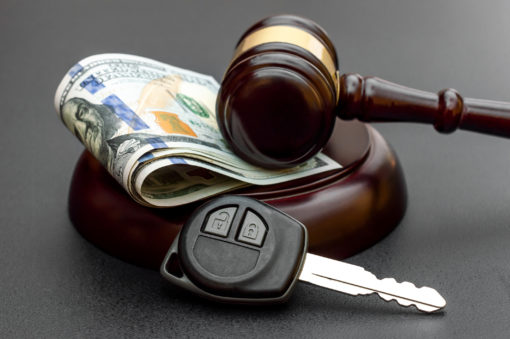
Evidence might vanish throughout that period, a witness might forget what transpired, and a person’s capacity to defend themselves might generally deteriorate. Due process demands that most crimes (apart from some capital offenses, such as homicide), have a statute of limitations because of this. Keep reading to learn about the statute of limitation that applies to DUI cases, then contact a DUI attorney if you have been charged with a DUI.
DUI statutes of limitations depend on if the charge is a felony or misdemeanor
Whether a DUI charge is a felony or a misdemeanor affects the statute of limitations. Misdemeanor charges must be filed within a year of the date the incident involving the driving under the influence occurred. Charges for felony DUI must be filed within three years of the incident.
So what does “commencement” of the charge mean? In this case, it typically denotes the beginning of the case. This is done by submitting a complaint in a DUI case that is a misdemeanor, or an indictment or information in a DUI case that is a felony. As an alternative, the case could be started when a suspect is arraigned on felony charges, an arrest warrant is lawfully issued, a bench warrant is issued, etc.
How to know if a DUI charge would be a felony or misdemeanor
Examining the highest penalty allowed by the law is necessary to determine if a DUI is a felony or misdemeanor for the purposes of the statute of limitations. You can tell whether a crime is a misdemeanor (one year statute of limitations) or a felony by looking at the maximum punishment, which is either one year or three years.
Driving while intoxicated or under the influence of narcotics is against the law in California. Additionally, it is illegal to drive while intoxicated or high and inflict bodily harm on another individual.
With certain exceptions, first, second, and third offense DUIs are typically charged as misdemeanors. For a misdemeanor DUI, the penalty can include up to six months in jail for a first offense and a year in jail for a second or third offense, as well as fines, taxes, required alcohol education seminars, license suspension, and other penalties.
For the fourth or subsequent DUI offense within a 10-year period, a felony DUI prosecution may be brought. If a person has been convicted of felony DUI in the previous 10 years, the prosecution may also file felony DUI charges against them. Last but not least, felony DUI charges will be brought against anyone who causes serious harm or death to another person by operating a vehicle while intoxicated. In California, three years in state prison is the maximum penalty for felony DUI; however, sentences may be increased.
Call now for a free legal consultation
A knowledgeable DUI lawyer can assist you if you have been accused of driving under the influence. Attorney Dan E. Chambers has the expertise and experience as a former prosecutor to assist you in getting the best result. To arrange a free initial consultation, get in touch with the Chambers Law Firm right away at 714-760-4088 or dchambers@clfca.com.




